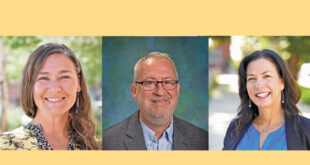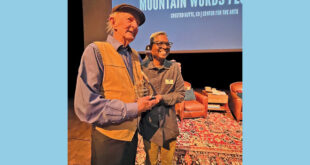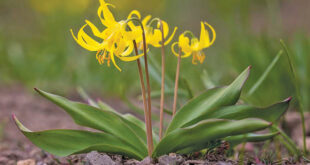Anderson Shepard works to save the world
Last month global media outlets lit up with a story they said was about the impact future climate change would have on worldwide viticulture and wine production. They reported that Napa might lose its Zinfandel, South Africa its Cabernet Sauvignon. They said vineyards would have to move to colder regions, taking over remote regions in China and western North America, and that even in these new places the grapes might not survive.
What they didn’t say was that the news reports were based on a research study that wasn’t focused so much on the success of viticulture as it was on the success of the wildlife and ecosystems that would be displaced should the wine industry move into new, “more appropriate” regions.
This was and is a problem, said Andy Shepard, one of the study’s authors, and a born-and-bred Crested Buttian now living in Washington, D.C.
“No one has chosen to emphasize the conservation and adaptation side to our story—that as viticulture, just like many forms of agriculture, is forced to adapt to climate change, wildlife habitat and water resources will potentially be faced with huge losses,” said Shepard. “Pardon my rant, but it’d be nice for someone to write a more well-rounded piece and not just another article saying, ‘Oh my god, the climate change enviros are saying that wine is doomed!’”
Shepard became involved in the study while working toward a master’s degree at the Bren School of Environmental Science and Management at the University of California, Santa Barbara. During a summer internship he worked for renowned conservationist Lee Hannah, and in doing so became interested in the possibility of modeling species distribution as it related to agricultural crops and shifting climate.
“All walks of life and all species are going to have to change and adapt to the climate,” said Shepard. “Wildlife face a specific threat as economies expand into new areas and begin to use resources. The result can be a lot of tension and a high level of competition for space.”
According to the study, which was published in the Proceedings of the National Academy of Sciences and used GIS technology and datasets from global climate models, wildlife will be in direct conflict with viticulture if the wine industry chooses to expand into areas previously devoid of large-scale agriculture operations.
“We found a lot of overlap between the remaining natural areas in the world, and the areas that in the future will be appropriate for wine grape production, but it doesn’t have to be a disaster,” said Shepard. “In South Africa, where they’re already facing extreme pressure from climate change, and natural lands are few and far between, they have established cooperatives to grow and market wildlife/nature-friendly wines. The growers can charge a premium for the product and wildlife are protected.”
Shepard, whose parents own Le Bosquet, was raised in Crested Butte and attended the Crested Butte Academy before attending Colorado College and earning a bachelor’s degree in biology. He then moved to Bozeman, Montana, where he ski bummed and worked at restaurants before heading off to California in his pursuit of higher education.
“I didn’t know exactly what specific research area I wanted to pursue, and the Bren program is designed to be a well-rounded degree that aims to ready graduates for the workforce,” said Shepard. “I missed the mountains—once you know how good it can be, it’s hard to settle for anything else—but I learned a lot, and you really can’t complain about going to school somewhere where you can keep your surfboard in your room and get some waves between classes.”
After graduation Shepard took his current job as a conservation manager for Defenders of Wildlife, a conservation nonprofit dedicated to the protection of all native animals and plants in their natural communities. The job called for a move to Washington, D.C., and though he loves the work, and can handle the city, Shepard said he dreams of moving back to Crested Butte.
“Being in Washington is good as far as being a professional, but the flipside of this work is sitting at a desk rather then being outside getting dirty,” he said. “I’m positioning myself to get back west of the 100th meridian, and I would move back to Crested Butte in a second if I could find a way to be employed in my field in the valley. Right now, I’m looking at the trade-off of people who live to work versus those who work to live.”
One thing Shepard said he knows for certain, and this applies to both work and lifestyle, is that even in Crested Butte the decisions individuals make can have an impact on the greater world.
“The results from our study indicate that from a consumer’s perspective, our choices can have a global impact. Now is the time for conservation and good management decisions. We have choices, and those choices can have a pretty big effect.”
 The Crested Butte News Serving the Gunnison Valley since 1999
The Crested Butte News Serving the Gunnison Valley since 1999




